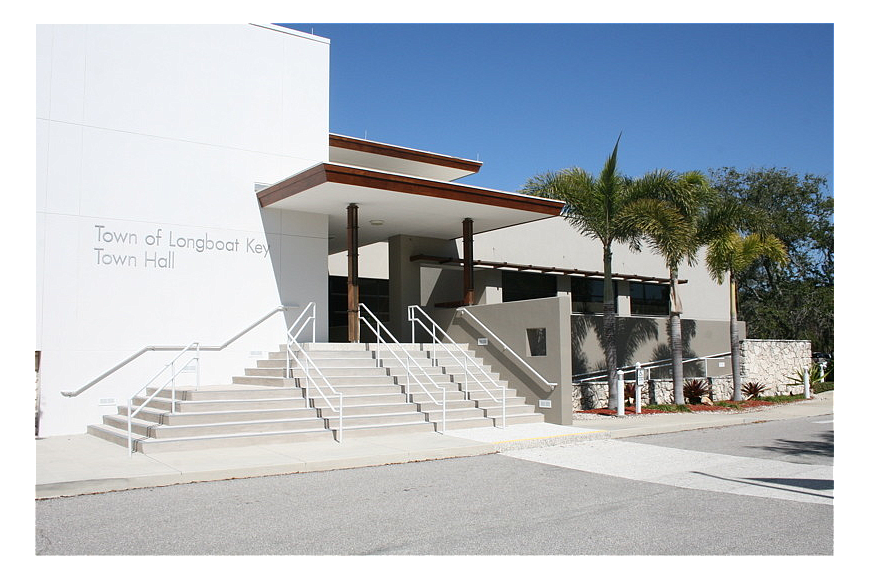- April 25, 2024
-
-
Loading

Loading

The Longboat Key Town Commission has faced a storm of criticism since Sept. 12, when it voted 4-3 on first reading to reduce the amount taxpayers will pay for a neighborhood underground utilities project by $5 million.
Florida Power & Light Co. initially estimated the project’s cost at $23.85 million. Town staff recently determined the estimate could be up to $10 million too high. The decision reflects the fact costs are expected to be much lower.
So why the criticism over a $5 million reduction?
With costs still uncertain, the commission agreed on first reading to use non-ad valorem revenue from the general fund if a shortfall exists.
The commission won’t vote on final assessments, including the proposed funding changes, until the town obtains accurate cost estimates for the project.
For now, the commission has only earmarked $370,308 in non-ad valorem revenue in the 2016-17 fiscal year budget to spend on the project.
Many voters say using non-ad valorem funding isn’t what they agreed to in the March 15 referendum, in which the town’s electorate approved issuing bonds of up to $23.85 million based on FPL’s estimated costs. They said they believed the project would be funded through assessments alone; referendum language permitted the use of non-ad valorem revenues “if necessary.”
“Using the ‘weasel words’ of the referendum language to circumvent the method advertised and approved by voters is disingenuous, at best,” wrote Longboat Key resident Bob White in an email to Commissioner Jack Daly.
Critics say they worry if project costs are higher than anticipated, the commitment to using non-ad valorem funds could affect future budgets.
“These funds may have to be replaced by ad valorem property tax revenue, which clearly is not what the voters approved in the referendum,” resident Bob Gault said.
Susan Alexander of Longboat Key called the decision “unfortunate.”
“I’m concerned with taking funds from the general fund because taxes could be higher down the road,” Alexander told commissioners at a workshop Monday.
Footing the bill
The commission has also faced criticism over the “55-foot rule” that results in property owners paying higher costs for the project if their properties are within 55 feet of a power line. The rule is based on town calculations those properties benefit from the project to a greater extent than those farther from overhead utilities.
Town Attorney Maggie Mooney-Portale warned the commission the town could not legally revise the 55-foot rule without redoing the entire referendum.
The commission voted 4-3 to reduce the assessments by recalculating the benefit for all properties, reducing the combined amount taxpayers would pay from assessments by $5 million, which amounts to about 50% of the general benefit cost for all properties.
Vice Mayor Terry Gans and commissioners Irwin Pastor, Jack Daly and Ed Zunz voted for the change. Commissioners Phill Younger and Armando Linde and Mayor Jack Duncan opposed it.
Daly defended his vote in a response to White’s email.
“… I supported the resolution pledging other town non-ad valorem revenues as the only reasonable and necessary way to respond to these stated resident concerns while recognizing such a pledge would be a backup in the event that the actual neighborhood costs do not support the funding of the lower assessments approved by the resolution, which equates to about $5 million of capital or annual funding of some $370,000,” Daly wrote.
Younger criticized the shift.
“We set the vote up to guarantee it got passed,” he said, referring to the referendum. “And once it passed, we changed the parameters.”
Former Longboat Key Commissioner Lynn Larson has campaigned staunchly against using the non-ad valorem funds. She told commissioners Monday they have broken taxpayers’ trust by earmarking the money from the general fund, which becomes a de facto tax increase if it’s used.
Larson said if the earmarked money is spent, a property tax increase will be necessary to augment the general fund.
“It’s going to amount to a 3.8% tax increase,” Larson said. “You disagree, but a fact is a fact.”
Any funds collected can only be used on the project.
Vice Mayor Terry Gans said Larson’s math is faulty because it assumes an action not yet taken. The commission has earmarked the funds to use only if necessary.
“The notion of (it being a) tax increase is clever, but it’s not true,” Gans said. “Nothing was increased. Nothing was raised as a result of this.”
Town Manager Dave Bullock pointed out none of the earmarked non-ad valorem revenue ever has to be spent.
“Ultimately, these funds would only be tapped or used if needed. You have not decided to spend it yet,” Bullock told commissioners Monday night. “The only thing you’ve voted on was to take a portion of the general fund balance and assign it.”
What’s next?
Bullock said moving about $300,000 per year from general revenue to debt service is a “manageable figure.” He said the shift in funding approved by the commission is allowable under the referendum language.
Bullock believes the furor will die once all costs are more definitive. It will take a few months, he said, but surveyors are now working on Longboat Key streets to document every bit of affected infrastructure.
Once costs are nailed down, Bullock said the focus can return to project benefits, such as enhanced safety, hurricane hardening and the aesthetics of no longer having to look at wires overhead.
“It’s one of these legacy projects where 30 years from now they’re going to say, ‘This is really nice,’” Bullock said.